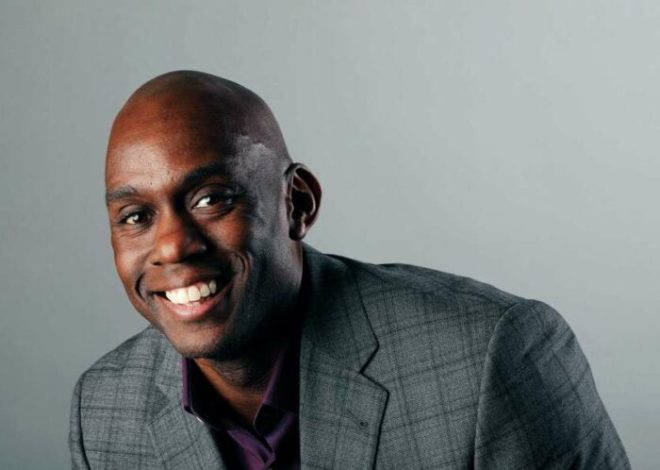Raye’s record-breaking Brits defied the limited imaginations of the British music industry | Brit awards
If Raye was lost for words when she won her first Brit award of the evening, song of the year, then – other than begging the music industry to award songwriters points on master recordings – she had certainly almost run out of them by the time she tearfully collected her sixth award of the night for album of the year, which saw her “ugly crying on national television”. The British pop star had already broken the record for the most nominations in a single year with seven nods – two of them in the category for best song, plus the latterly announced best songwriter. Then she broke the record for the most wins in one year, a joint title previously held by Harry Styles, Adele and Blur with four apiece. Styles’s 2023 sweep was a celebration of his global dominance; while Raye hasn’t achieved anywhere near the same commercial or international reach, her near-clean sweep reflects the creative innovation of her debut album, last year’s My 21st Century Blues, a record whose brutal candour and skilful flexing between rap, R&B, dance, pop, soul and big balladry make her a worthy peer to this year’s best international artist SZA – another genre-straddler – and to former British solo female artist winner Amy Winehouse. Raye, AKA 26-year-old Rachel Keen, wasn’t recognised at all at the Grammys last month, making her feel like a particularly homegrown success story – although her victory also represents a gigantic failure for the British music industry that couldn’t recognise her talent during the seven years that she was signed to Polydor.
In 2021, Raye posted a tearful plea to social media saying that her label had denied her the opportunity to make even one of the four albums on her deal, and that dozens of what she considered potential hits – among them the No 1 single Escapism, tonight named as the year’s best song – were languishing on a hard drive. Instead, she was trapped in guest-vocalist purgatory, singing on generic bangers by the likes of David Guetta and Jax Jones. The history of aggrieved female pop stars agitating against their labels has not historically ended well – just ask Britney Spears and Sky Ferreira – yet astonishingly, Polydor freed her from the deal and Raye went it alone as an independent artist, working with label services company the Orchard. She wrote much of her long-overdue debut album by herself, as well as co-producing all but two songs: it hit No 2 and scored her a Mercury prize nomination and an Ivor Novello win. That Polydor were apparently unable to imagine Raye’s considerable potential beyond the realm of the sticky-floor nightclub banger should prompt extremely hard questions about major-label A&R practices and the other young women inevitably being held back by their bet-hedging.
For now, Raye’s recognition by the industry-populated, 1,200-strong Brits voting academy feels like a desperate attempt by the British music business to claim her for its own and mark her success with its imprimatur: voting for the fairytale outcome while quietly ignoring the cage she was kept in. (Meanwhile you do kind of feel for the very worthy acts who missed their chance in the spotlight, some of whom, looked a bit miffed as the cameras cut away to them.) While no one should forget exactly how she aced her second act, it’s also worth noting that Raye isn’t a household name, and that if the increasingly irrelevant Brit awards is good for anything, it’s that her extraordinary, medley-style performance and overall prominence this evening will have exposed her to a whole new audience – televised platforms for the best of British music not exactly being in vast supply in 2024. That audience feels limitless, too: Raye plays with a Winehouse-loving teen audience who never actually got to live through Winehouse’s too-brief pop heyday, as well as with older listeners impressed by the traditional talent and soul acumen she showcased in a special concert at the Royal Albert Hall last year. Where the Brits can simply clog the mantlepiece for superstars, it may well apply rocket fuel to Raye’s streaming figures in the coming week.
After the controversy over the all-male best artist category last year – the Brits having done away with gendered categories in 2022 – Raye’s success also represents a course-corrective for the Brits, where 70{e4fde47aac1ae89bf29a738865fe54795955cdfa0720535d5449f21447854535} of this year’s winners, including those announced prior to the ceremony, were women. (At the Grammys, too, the Big Four and genre categories were dominated by women.) The most striking of the male victors was rapper Casisdead in best hip-hop/grime/rap – the genre categories all being voted for by fans – after 20 years in the game, while Bring Me the Horizon won the all-male alt/rock field. There were still WTF moments: in best dance act, Calvin Harris beat Fred Again, who – Miracle aside – was far more culturally penetrating in the last year; Jungle winning best group over Young Fathers is a triumph of sports montage music over genuinely provocative art that underscores the absurdities in paranoid Britain’s identity crisis while embodying a progressive multicultural alternative. But that’s the ever-contradictory Brits for you: a love-in for an industry that almost silenced its greatest prize.

